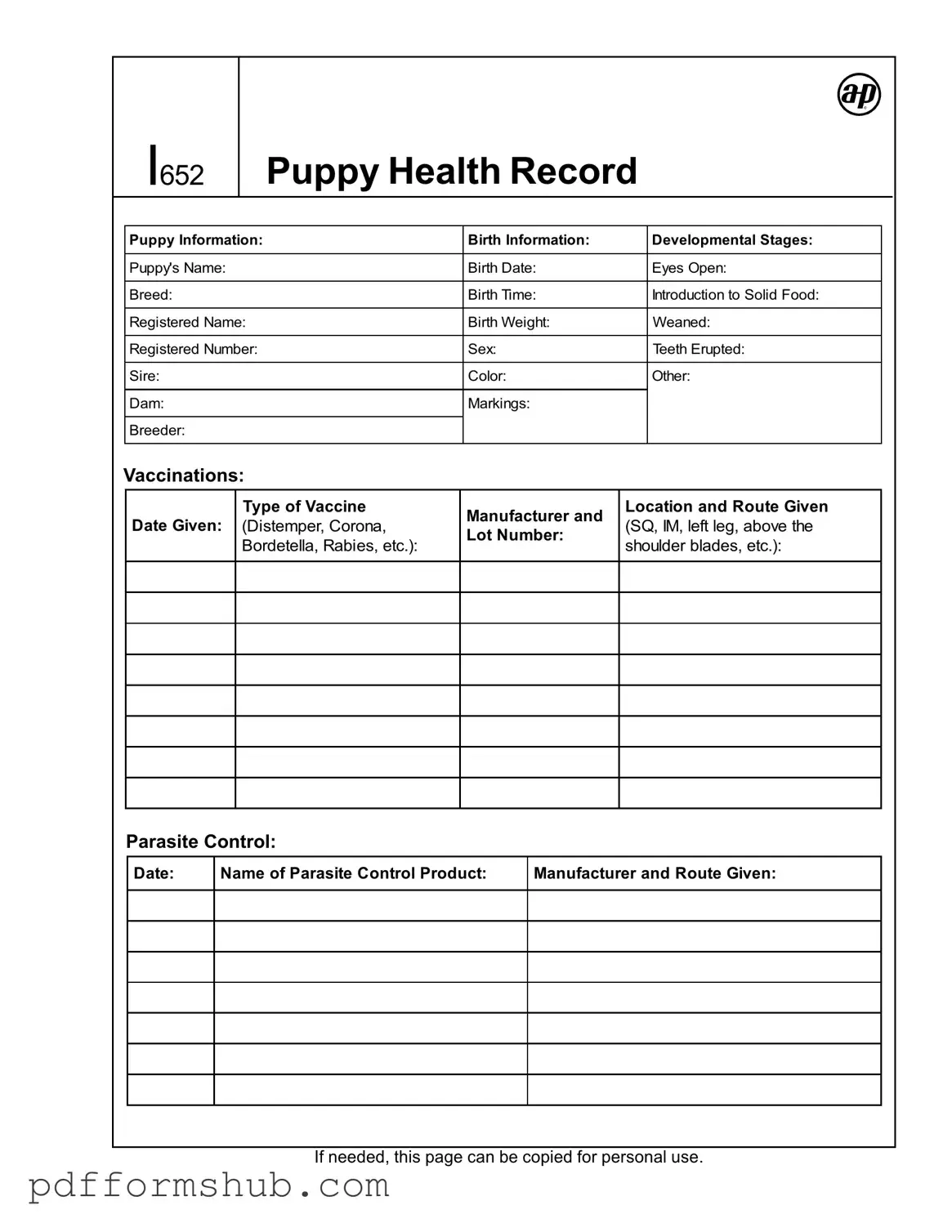Fill in Your Puppy Health Record Form
The Puppy Health Record form serves as a comprehensive tool for tracking the health and developmental milestones of your puppy. This essential document includes vital information such as vaccination dates, birth details, and other significant health events. Ensuring that this form is accurately filled out is crucial for your puppy's ongoing health and well-being; start by clicking the button below to fill out the form.
Customize Form

Fill in Your Puppy Health Record Form
Customize Form

Customize Form
or
Free PDF Form
Short deadline? Complete this form now
Complete Puppy Health Record online without printing hassles.